The Netflix smash Wednesday fuses past Addams Family-related media, monster-movie imagery, and YA silliness, overlaid with the aesthetic (if not always the inspiration) of producer and sometime episode director Tim Burton.
This is all in service of a television show, yes, but more often those influences also add up to perhaps the most GIF-able, Instagrammable #content on mainstream TV, sometimes more effective in screen grabs or one-minute excerpts than as a whole. It amounts to an odd but admittedly contemporary way of harkening back to the single-panel Charles Addams cartoons that originated many of these characters.
As such, Wednesday TV creators Alfred Gough and Miles Millar might have guessed that it would be difficult to top the heavily shared, widely beloved, and even t-shirted sequence from the show’s first season where Wednesday (Jenna Ortega), attending a gathering at her X-Men-like Nevermore Academy, cut loose (in her tightly controlled way) to perform a precisely ornate dance number. It was a moment where the show briefly rose to the level of Ortega’s controlled and charismatic performance.
The first four episodes of the second season, which batch-premiered last month, didn’t even seem to try to recapture that magic, perhaps wisely. Instead they set to work on stakes-raising plots and subplots involving Wednesday’s attempt to solve the pre-crime of her unlikely bestie Enid’s not-yet-murder, all without the psychic abilities that warned Wednesday of the danger in the first place.
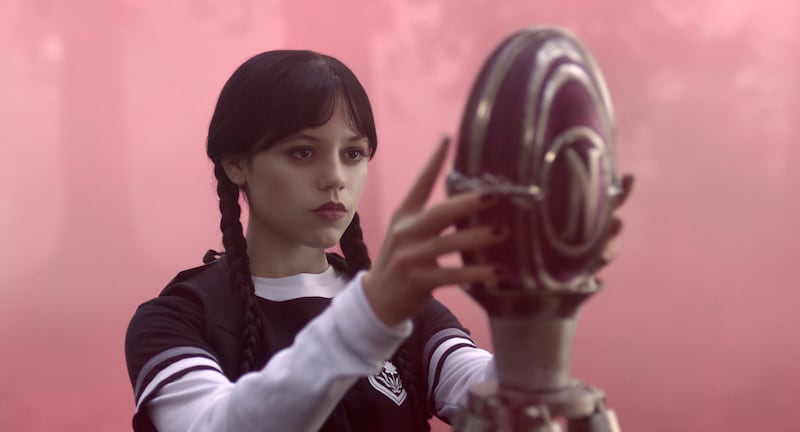
The just-out second half of the season, however, makes a go of re-entering that dance scene’s blissful fugue state – twice.
The more obvious equivalent comes in the seventh episode, the first of two Burton-directed installments in this group, which dropped September 3.
It allows the spotlight to move over to Enid (Emma Myers), performing at a fundraising gala organized by Principal Dort (Steve Buscemi) and Wednesday’s mother Morticia (Catherine Zeta-Jones). It’s a cute corollary to last season’s dance, and hopefully more characters will get their turns in successive seasons.
But the more sustained bit of inspired performance comes an episode earlier, the longest and most satisfying of the season.
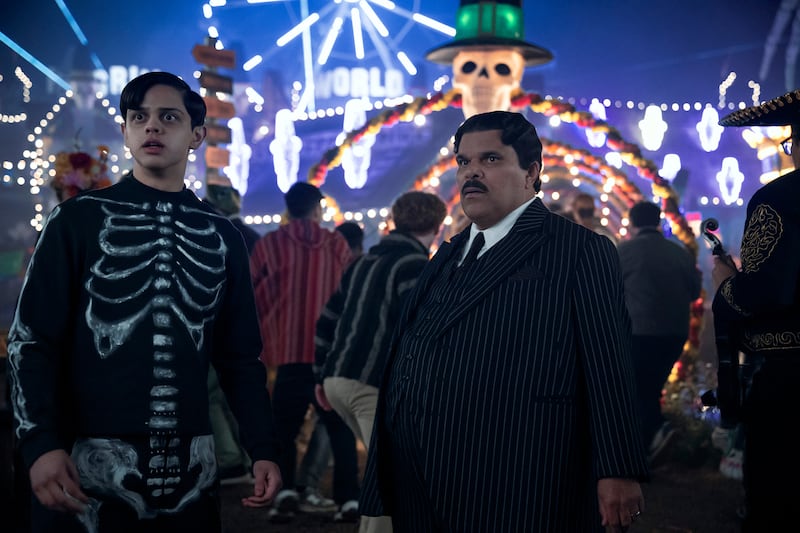
It’s essentially a body-swap movie in miniature, forcing Myers to affect the deadpan stillness of Ortega’s Wednesday, while Ortega breaks out of that routine as the bubblier, more emotive Enid.
It’s not a formal dance, but Ortega plays it like one, especially when Enid-as-Wednesday decides to spite her difficult friend by prancing around the school squad in bright colors, squealing and selfie-ing to her heart’s content, laying waste to Wednesday’s carefully curated image as a dire goth.
They may be handed broad characters to imitate, but Ortega and Myers nonetheless do a better job of parodying each other than anyone in Freakier Friday.
Given the show’s attempt to develop the relationship between Wednesday and Morticia, evoking a familiar mother-daughter story with Wednesday and Enid instead feels a little bizarre – and not in that delightful, Addams-y way.
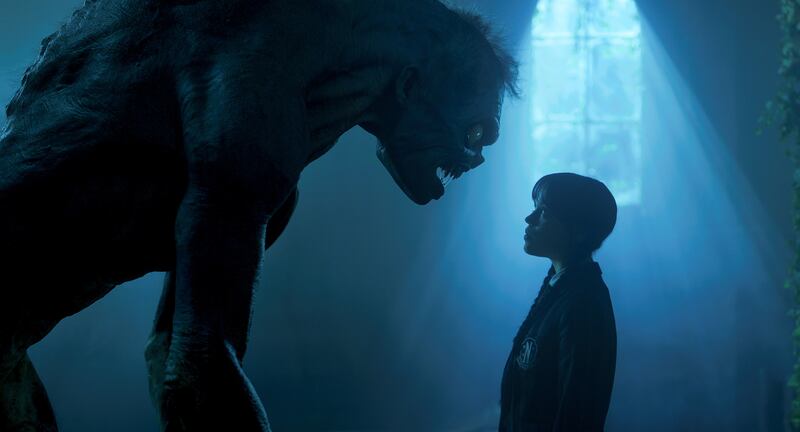
The second season has shoved aside the stock love triangle of the first season (seemingly and understandingly at Ortega’s behest) in order to give more screen time to Wednesday’s mom, who serves as a major roadblock to her headstrong, heedless investigations. That storyline continues in the second half, and it’s still hobbled by the miscasting of Zeta-Jones in the iconic Morticia role.
Granted, reviving a part once played by Anjelica Huston is always going to be a difficult task, but Zeta-Jones plays Morticia with a delicate airiness and barely a whisper of perversity. (Luis Guzmán has a similarly difficult task following Raul Julia as a live-action Gomez, but he at least sells the character’s unflappable delight in his weird little world.)
A Wednesday/Morticia clash should feel potentially deadly, or at least bitterly funny. Instead, it’s repetitive and mopey.
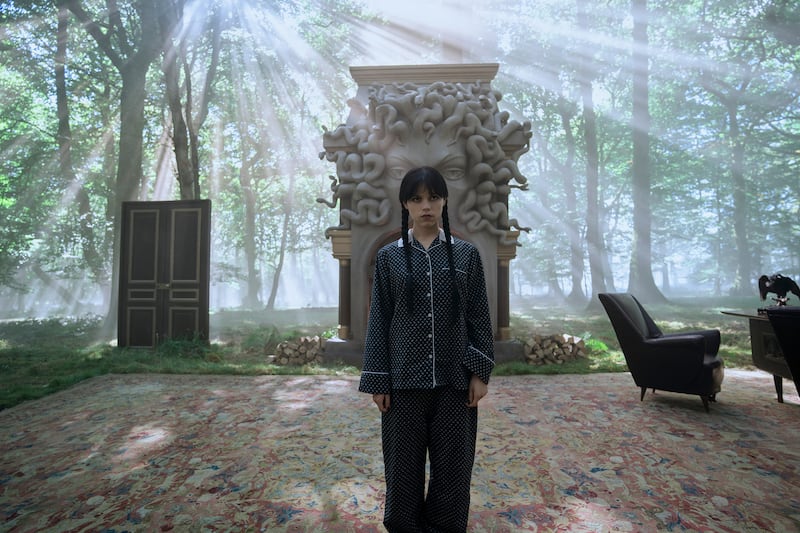
Repetition is a problem for Wednesday throughout this season. One logistical snarl with streaming services’ increasingly epic breaks in between short bursts of episodes is that they can inadvertently make a mere second season feel like a legacy sequel, finding obligatory ways to revive and string along storylines (and characters) that seemed mostly resolved.
The back half of Wednesday’s second season pays off the introduction of some new characters like Agnes (Evie Templeton), a sycophantic Wednesday fangirl who can turn invisible, but it’s still overcrowded with underserved newcomers and way too many reappearances.
More than ever, this lovingly designed Baby Goth aesthetic is a pleasure to watch and a less-than-exquisite pain to listen to, with some dialogue that could be charitably described as first-drafty (and less charitably described as chatbot-adjacent).
Luckily, the season finale leans into the show’s strengths by letting Burton run wild with monster-mash imagery; it resembles a less shrieky version of Van Helsing, or a ride through the Dark Universe at the new Epic Universe theme park.
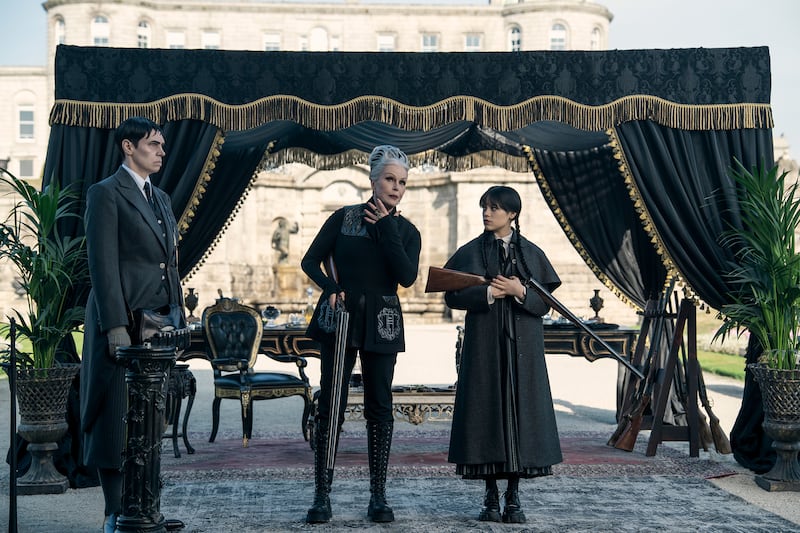
Wednesday also, at times, brings to mind a big-budget version of a Saturday morning cartoon spinoff of a beloved property. Instagram, theme parks, ’80s cartoons, misbegotten Hugh Jackman vehicles… you may notice that few of its comparison points involve good old-fashioned quality television. This is definitely not that.
It’s easy to wish that more of Wednesday had the elegance and wit of Ortega’s performance, or the sweet-and-sour soul of Burton’s movies. But as shameless Netflix product lines go, it’s surprisingly easy to savor the good stuff.
The post Jenna Ortega Deserves Way Better Than Suffering Through ‘Wednesday’ appeared first on The Daily Beast.




